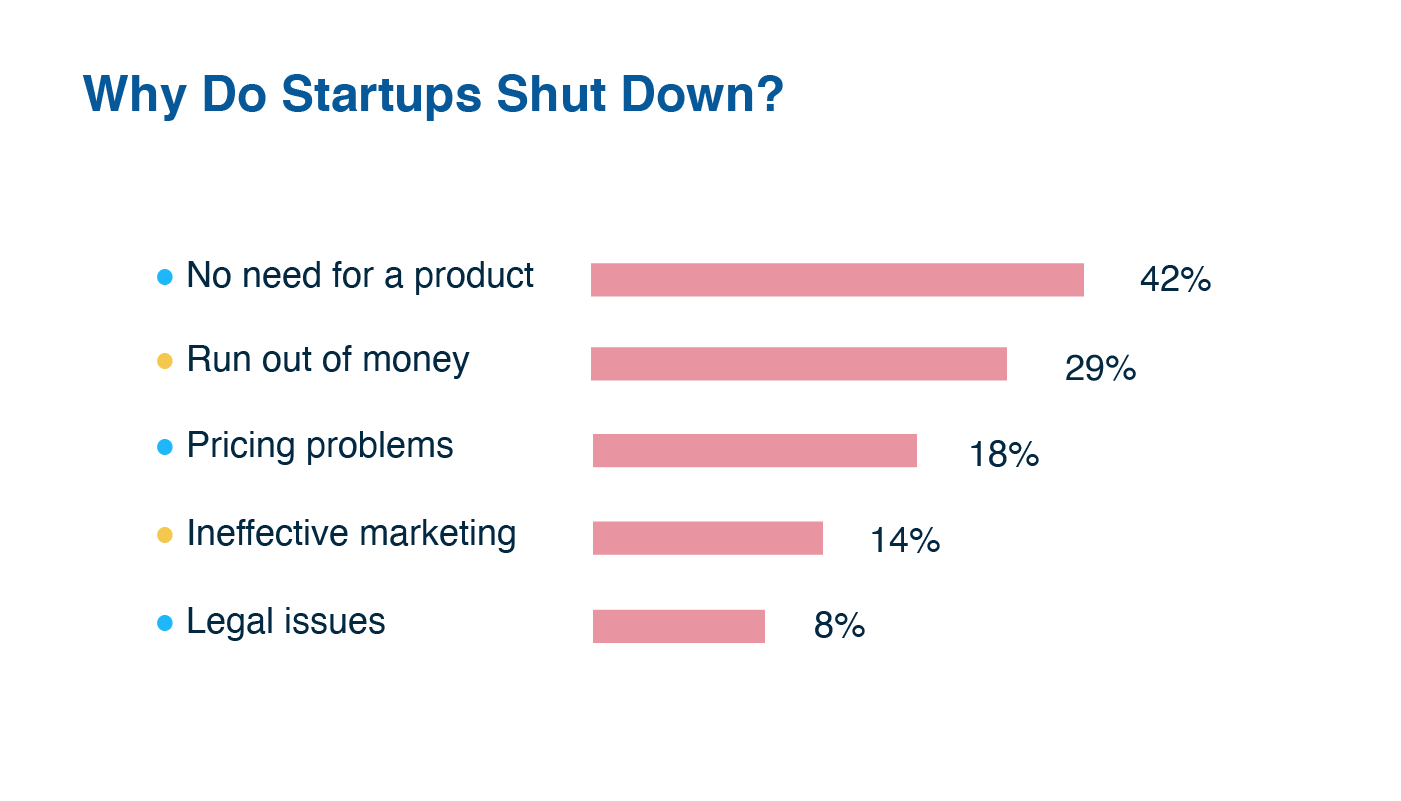In the fast-paced and dynamic world of entrepreneurship, the journey to success is often paved with challenges. Startup founders often face numerous obstacles that can lead to the failure of their ventures. Drawing from my own experiences as a seasoned entrepreneur and from my interactions with numerous startup founders over the years, I’ve compiled a comprehensive list of the top five reasons why startups fail. Understanding these reasons and learning how to navigate them can significantly enhance your chances of building a successful business.
Lack of Persistence – The Fifth Biggest Reason
One of the most common pitfalls for startups is the lack of persistence. Building a successful startup is not an easy feat and often demands unwavering commitment and perseverance. Many founders give up just before they are about to hit the big time. It’s important to set realistic expectations and prepare for the long haul, acknowledging that building a successful startup is akin to running a marathon, not a sprint.
Pro Tips to Avoid Lack of Persistence
- Set realistic expectations and prepare for the long haul.
- Cultivate resilience and endurance to overcome the inevitable challenges.
- Stay focused on your long-term goals and vision, despite the hurdles.
Premature Scaling – The Fourth Biggest Obstacle
Premature scaling can be detrimental to the growth of a startup. It often involves rapid expansion without a solid foundation, leading to inefficient use of resources and financial instability. Many startups succumb to the pressure to grow too quickly after securing funding, resulting in unsustainable business practices and eventual failure.
Pro Tips to Avoid Premature Scaling
- Exercise caution when scaling immediately after a funding round.
- Focus on sustainable growth and ensure the business is prepared for expansion.
- Prioritize profitability and sustainability over rapid but unsustainable growth.
Broken Founding Team – The Third Biggest Challenge
The dynamics among the founding team play a crucial role in the success of a startup. A dysfunctional founding team can impede progress and significantly hinder the company’s growth potential. Establishing clear roles and responsibilities, fostering open communication, and addressing any conflicts early on are vital to maintaining a healthy and productive founding team.
Pro Tips to Avoid a Broken Founding Team
- Foster open communication and transparency within the founding team.
- Clearly define roles and responsibilities to minimize conflicts and misunderstandings.
- Embrace diversity and complementary skill sets to promote a well-rounded team dynamic.
Bad Timing – The Second Biggest Hurdle
While being a first mover in the market can have its advantages, it is crucial to strike a balance between being too early and too late. Timing is crucial in the success of a startup. Being too early can lead to underdeveloped technology and an unready market, while being too late can result in fierce competition and missed opportunities.
Pro Tips to Address Bad Timing
- Aim for the sweet spot between being too early and too late in the market.
- Prioritize execution and innovation to outperform competitors and gain an edge.
- Continuously assess market trends and adapt your strategies accordingly.
No Product-Market Fit – The Primary Culprit
Finding a product-market fit is paramount for the success of any startup. It entails developing a product that addresses a market demand and is valued by consumers at a profitable price point. Failure to identify and achieve a product-market fit can lead to prolonged financial instability and eventual closure of the business.
Pro Tips to Achieve Product-Market Fit
- Focus all efforts on finding the right product-market fit for your business.
- Utilize a Minimum Viable Product strategy to gather feedback and iterate quickly.
- Be wary of false positives and ensure that your product truly resonates with your target audience before scaling.
Understanding the complexities and challenges that contribute to the failure of startups is crucial for every entrepreneur. By learning from the mistakes of others and implementing effective strategies to address these challenges, you can significantly enhance your startup’s chances of success.

